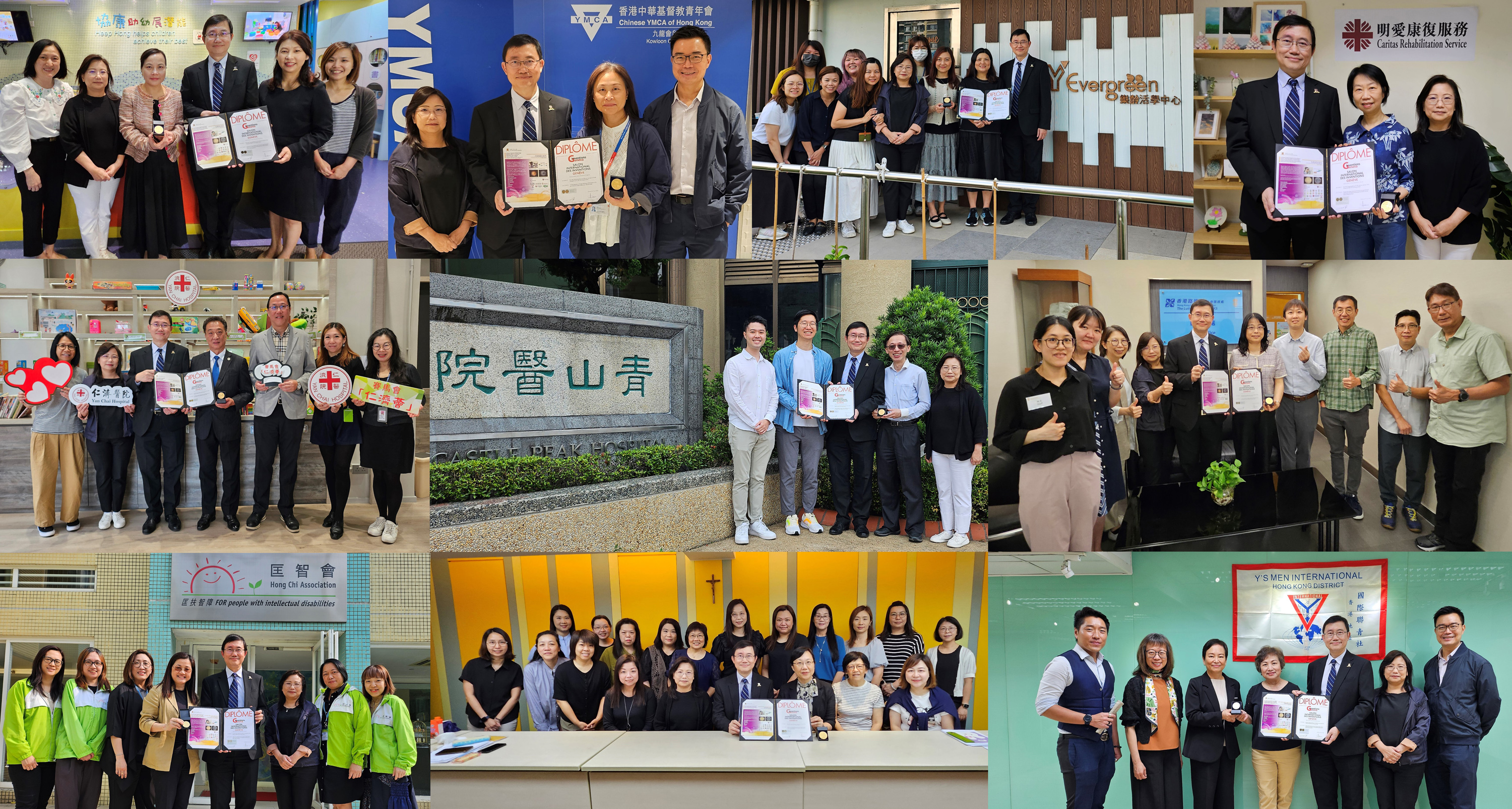The Centre for Clinical Research and Biostatistics (CCRB), The JC School of Public Health and Primary Care, at The Chinese University of Hong Kong (CUHK)’s Faculty of Medicine has won two gold medals and a special award at the International Exhibition of Inventions Geneva this year for two projects featuring the AI-based Automatic Retinal Image Analysis (ARIA) technology, on autism spectrum disorder (ASD) in preschoolers and depression in adults.
The first project aims to utilise innovative technology to allow children at risk of ASD to receive relevant educational intervention programmes as soon as possible, while the other aims to raise public awareness about depression, contributing to depression prevention and management. The team has already collaborated with local non-profit organisations, kindergartens and medical institutions to recruit subjects and commence research work.

Photo shows Professor Benny Zee Chung-Ying, Director of CCRB at The Jockey Club School of Public Health and Primary Care at CU Medicine, and CUHK team receiving the awards.
Project 1: Using ARIA to study the risk of autism and global developmental delay in preschoolers
In 2021, CCRB developed ARIA technology to assess the risk of ASD in adolescents, with a sensitivity of up to 90%. It analyses captured retinal images to identify if there are characteristics such as those related to the thinning of the retinal nerve fibre layer of the children’s eyes. Researchers have recently demonstrated that the same methodology can be used in children aged 2-6 and can distinguish ASD from global developmental delay. The study included more than 28 local NGOs and educational institutions.
Professor Benny Zee Chung-Ying, Director of CCRB at The Jockey Club School of Public Health and Primary Care at CU Medicine, said, “This project provides hope for ASD children, allowing them to be targeted with the most relevant educational intervention programme from a very young age.”
The project was awarded a Gold Medal with Congratulations of the Jury and a Special Award from the Korean Invention Promotion Association (KIPA).
Project 2: ARIA technology detects depression risk in adults
A previous CCRB study showed ARIA can estimate the risk of depression, anxiety and stress in patients who have recovered from nasopharyngeal cancer years after completing chemoradiation therapy. The research team demonstrated in this project that psychiatric hospital patients with depression can be detected using ARIA. Also, as the digital approach allows for fast, easily scalable, accurate assessment of the risk of depression in community screening and routine follow-up of patients in remission, it will make a significant contribution to depression prevention and management.
Professor Zee added, “Both of our projects share some common traits. They are inventions dealing with challenging social problems that need a breakthrough with innovative solutions. We have a lot of support from organisations in the related fields and service providers facing these challenges. Thanks to Heep Hong Society, Hong Chi Association, Hong Kong Catholic Diocesan Kindergarten, Hong Kong Lutheran Social Services, YWCA, YMCA, Y’s Men International Hong Kong District, Caritas Rehabilitation Services, Castle Peak Hospital and Yan Chai Hospital. The dedication and guidance of these organisations, who show us the community’s needs, are the key to the success of the innovative development of potential solutions. We also thank all the students, parents, and participants for their trust and cooperation in the study.”

(1st row, from left) Heep Hong Society, YMCA, YWCA and Caritas Rehabilitation Services
(2nd row, from left) Yan Chai Hospital, Castle Peak Hospital and Hong Kong Lutheran Social Services
(3rd row, from left) Hong Chi Association, Hong Kong Catholic Diocesan Kindergarten and Y’s Men International Hong Kong District
